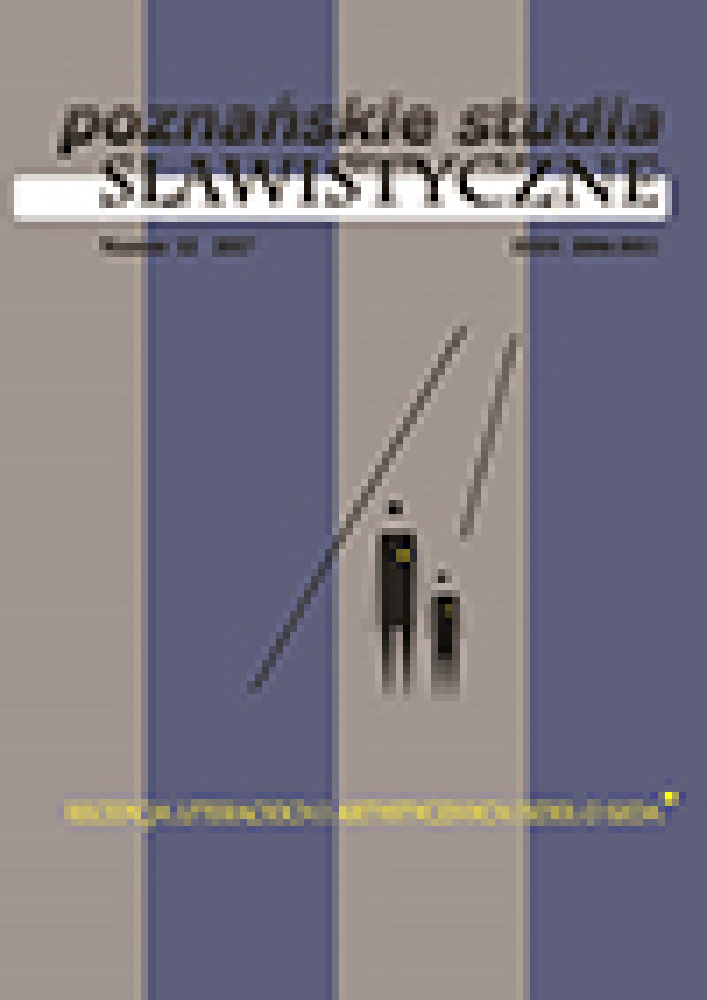Abstrakt
In the article one book written by the Croatian author, Ante Kesić, is taken into consideration. The novel Black Snow, published in 1957, narrates about a Slovenian young woman, Breda, who was caught by the Germans in Ljubljana (for her contacts with communist partisans) and sent to the Dachau Concentration Camp. Although not of Jewish origins she encounters the Holocaust of the Jews in the camp and gets pregnant with a Jewish artist. The novel conceptualizes tragedy of war and the Holocaust in a very experimental way, by using a range of modernist, avant-garde or even surrealist literary techniques. The author attempts to invent a new language with a new grammar that would enable to express something that is not expressible.Bibliografia
DeKoven Ezrahi S., 2014, Holokaust a zmieniające się granice sztuki i historii, w: Reprezentacje Holokaustu, wyb. i oprac. J. Jarniewicz, M. Szuster, przeł. M. Michalski, Kraków–Warszawa, s. 163–182.
Lang B., 2004, Przedstawianie zła: etyczna treść a literacka forma, przeł. A. Ziębiń- ska-Witek, „Literatura na świecie” nr 1–2, s. 15–64.
White H., 2004, Realizm figuralny w literaturze świadectwa, przeł. E. Domańska, „Literatura na świecie” nr 1–2, s. 65–80.
Ozick C., 2004, Prawa historii i prawa wyobraźni, przeł. Z. Batko, „Literatura na świecie” nr 1–2, s. 81–94.
Langer L.L., 2004, Scena pamięci. Rodzicie i dzieci w tekstach i świadectwach Holokaustu, przeł. J. Mikos, „Literatura na świecie” nr 1–2, s. 127–140.
Kesić A., 1957, Crni snijeg, Zagreb.
Nemec K., 2003, Povijest hrvatskog romana od 1945. do 2000. godine, Zagreb.
Quignard P., 2004, Nienawiść do muzyki, przeł. E. Wieleżyńska, „Literatura na świecie” nr 1–2 (390–391), s. 183–200.
Šnajder Đ., 1971, Uvod u najnoviju hrvatsku prozu, Zagreb.
White H., 2012, Truth and Circumstance: What (If Anything) Can Be Properly Said about the Holocaust?, w: The Holocaust and Historical Methodology, red. D. Stone, New York–Oxford, s. 190–202.
Wittgenstein L., 2010, Tractatus Logico-Philosophicus, przeł. B. Wolniewicz, Warszawa.
Licencja
Prawa autorskie (c) 2017 Maciej Czerwiński

Utwór dostępny jest na licencji Creative Commons Uznanie autorstwa – Bez utworów zależnych 4.0 Międzynarodowe.
